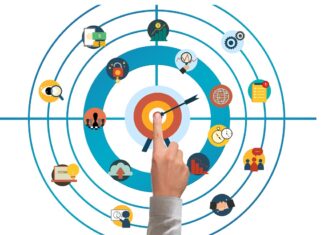Artificial Intelligence (AI) is making a significant impact across various industries, with bioinformatics being one of the primary fields to benefit from these technological advancements. AI in bioinformatics is rapidly transforming how we process, analyze, and interpret biological data, providing groundbreaking solutions to complex challenges in fields like genomics, disease research, and personalized medicine. AI in bioinformatics has opened new frontiers in the understanding of biological processes and disease mechanisms, making it an essential tool for researchers and clinicians alike. By integrating AI into bioinformatics workflows, scientists can uncover hidden patterns in biological data that were previously difficult or impossible to detect. In this article, we will explore 10 game-changing facts you must know about AI in bioinformatics, and how this innovative technology is revolutionizing the field.
1. AI Enhances Genomic Data Analysis
Genomic data analysis is one of the most powerful applications of AI in bioinformatics. The massive amount of data generated by genomic sequencing technologies often presents challenges in terms of storage, processing, and analysis. AI algorithms, particularly machine learning models, can help scientists analyze genomic data more efficiently and accurately by identifying key patterns, mutations, and genetic variations that are associated with diseases or specific biological traits.
AI in bioinformatics enables faster and more accurate identification of genetic markers, helping researchers better understand the genetic basis of diseases such as cancer, diabetes, and rare genetic disorders. The ability to rapidly process and interpret genomic data allows for earlier diagnosis and more targeted treatments, making AI an invaluable tool in modern genomics research.
2. AI Accelerates Drug Discovery and Development
The process of drug discovery is long, costly, and often results in failures. AI in bioinformatics is significantly accelerating this process by enabling the discovery of potential drug candidates faster and with greater precision. By using AI to analyze vast datasets, including molecular structures, genetic information, and patient records, researchers can identify promising drug compounds and predict their efficacy before they enter clinical trials.
AI models are also used to simulate how different compounds will interact with biological systems, which can help researchers prioritize which drugs to develop further. This not only shortens the drug development timeline but also reduces the risk of failure in clinical trials, ultimately leading to more effective therapies for patients.
3. AI in Bioinformatics Improves Personalized Medicine
Personalized medicine is an approach that tailors medical treatment to the individual characteristics of each patient, such as their genetic makeup and lifestyle. AI in bioinformatics plays a crucial role in advancing personalized medicine by analyzing large datasets from patients, including genomic information, medical history, and environmental factors, to provide insights into the most effective treatment strategies for each individual.
AI algorithms can predict how patients will respond to specific medications or treatments based on their unique genetic and clinical profiles. This helps healthcare providers select the most appropriate therapies, improving patient outcomes and reducing the likelihood of adverse drug reactions. As personalized medicine continues to grow, AI in bioinformatics will be a key enabler in making treatments more precise and effective.
4. AI Helps Detect Disease Biomarkers
Identifying biomarkers for diseases is essential for early detection, diagnosis, and monitoring of disease progression. AI in bioinformatics is playing a pivotal role in identifying new biomarkers for a range of diseases, including cancer, cardiovascular diseases, and neurodegenerative disorders. AI-powered tools can sift through large datasets of biological information, including gene expression data, protein interactions, and metabolomic profiles, to discover potential biomarkers that may indicate the presence or progression of disease.
By uncovering new biomarkers, AI is enabling more accurate diagnostic tests and improving the ability to monitor disease states. This is particularly important for diseases where early detection can make a significant difference in treatment outcomes, such as cancer, where the earlier the disease is caught, the better the chances of successful treatment.
5. AI Improves Proteomics Research
Proteomics, the study of the structure and function of proteins, is another area where AI in bioinformatics is making a significant impact. Proteins are essential for virtually all biological processes, and understanding their functions and interactions is crucial for advancing medical research. AI algorithms can analyze vast amounts of proteomics data, such as protein expression levels and protein-protein interaction networks, to identify patterns and predict protein functions.
AI is also used to help decipher the complex three-dimensional structures of proteins, which is essential for understanding how they work and how they can be targeted for therapeutic interventions. This level of precision and efficiency in proteomics research is accelerating drug discovery and providing deeper insights into disease mechanisms.
6. AI Enables Faster Sequencing and Data Analysis
Sequencing technologies have advanced rapidly over the past few decades, allowing researchers to sequence entire genomes in a matter of hours. However, the real challenge lies in the analysis of this data. AI in bioinformatics is helping to address this challenge by automating the analysis of sequencing data and providing faster, more accurate results.
AI algorithms can quickly identify key variations in the DNA sequence, such as single nucleotide polymorphisms (SNPs) or structural variants, and link them to specific traits or diseases. By automating the analysis process, AI is reducing the time required to interpret sequencing data, allowing for faster and more accurate diagnoses and personalized treatment plans.
7. AI Enhances Predictive Modeling in Disease Research
Predictive modeling is an essential tool in bioinformatics for understanding disease progression, predicting outcomes, and designing effective interventions. AI in bioinformatics is enhancing predictive modeling by using machine learning algorithms to analyze large datasets and make predictions about how diseases will develop or how patients will respond to treatment.
For example, AI models can analyze patient data to predict the likelihood of disease recurrence, progression, or response to a particular therapy. This helps clinicians make more informed decisions and tailor treatments to individual patients. Predictive modeling powered by AI is improving the efficiency of clinical trials, enabling researchers to identify potential outcomes before they occur.
8. AI Facilitates Real-Time Data Analysis for Clinical Applications
Real-time data analysis is crucial in clinical settings, where healthcare providers need to make quick, data-driven decisions. AI in bioinformatics enables real-time analysis of clinical data, such as patient health records, imaging data, and laboratory results, to provide immediate insights into a patient’s condition.
By integrating AI into clinical workflows, healthcare providers can make faster diagnoses, monitor disease progression, and adjust treatment plans in real-time. This is particularly important in critical care settings, where timely decisions can have a significant impact on patient outcomes.
9. AI Assists in Identifying Drug Resistance Mechanisms
One of the significant challenges in treating infectious diseases, such as tuberculosis or HIV, is drug resistance. AI in bioinformatics is playing an important role in identifying the genetic and molecular mechanisms behind drug resistance. By analyzing genetic mutations and other biological factors, AI can pinpoint how pathogens evolve to resist treatment and suggest strategies for overcoming resistance.
This is essential for developing new drugs and treatment regimens to combat resistant infections. AI is also helping researchers identify new drug targets and optimize existing therapies to combat resistance, providing new hope for patients facing drug-resistant diseases.
10. AI Facilitates Collaborative Research and Data Sharing
Collaboration is essential in bioinformatics research, as the complexity of biological systems requires the pooling of expertise and data from various disciplines. AI in bioinformatics is facilitating collaboration by enabling data sharing and providing tools that allow researchers from different fields to work together more effectively.
AI-powered platforms allow researchers to access and analyze large datasets, share insights, and collaborate on projects in real-time. This promotes a more collaborative approach to solving complex biological problems and accelerates the pace of discovery. AI is bridging the gap between different research disciplines and helping to advance the understanding of diseases, leading to new insights and more effective treatments.
Conclusion
AI in bioinformatics is revolutionizing the field of biology and healthcare by providing powerful tools to analyze complex biological data, accelerate drug discovery, and improve patient outcomes. From enhancing genomic data analysis to identifying disease biomarkers, AI is reshaping how we approach disease diagnosis, treatment, and prevention. By automating data analysis and providing predictive insights, AI is enabling faster, more accurate diagnoses and personalized treatment plans. As AI continues to evolve, its role in bioinformatics will only grow, bringing new opportunities for researchers, clinicians, and patients alike.























